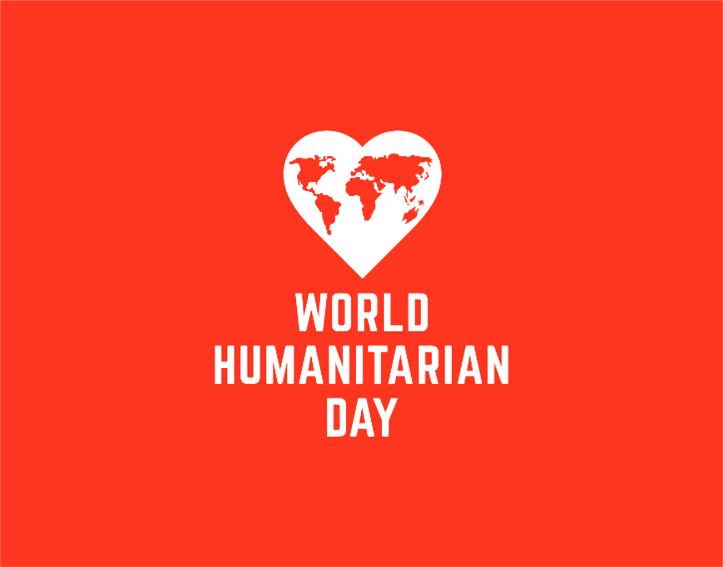A Call to #ActForHumanity
On 19 August, we mark World Humanitarian Day — a time to honor those who step into crises to help others, and to stand with the millions of people whose lives hang in the balance.
This year the message is clear: the humanitarian system is stretched to its limits; underfunded, overwhelmed and under attack.
Where bombs fall and disasters strike, humanitarian workers are the ones holding the line keeping people alive, often at great personal risk. But more and more those who help are becoming targets themselves.
In 2024 alone over 380 humanitarian workers were killed. Some in the line of duty, others in their homes. Hundreds more have been injured, kidnapped or detained, and there is reason to fear 2025 could be worse.
Too often the world looks away, even when these attacks violate international law. The laws meant to protect aid workers are ignored. Those responsible walk free. This silence and lack of accountability cannot continue.
The system is failing not just humanitarian workers, but the people they serve. We’re not at a crossroads anymore. We’re standing at the edge. Needs are rising. Funding is falling. Attacks on aid workers are breaking records.
To pull us back from that edge, this World Humanitarian Day we’re relaunching #ActForHumanity with sharper urgency demanding protection, accountability and action.
It’s time to turn global outrage into real pressure on those in power, asking them to:
- Protect humanitarian workers and the civilians they serve
- Uphold international humanitarian law
- Fund the lifelines we claim to support
If we can’t protect the people who save lives, what does that say about us? If we let this continue, we risk losing not just a system but our sense of humanity.
#ActForHumanity Campaign
Leaders ignored last year’s call. This year, we relaunch #ActForHumanity. Let's rally public pressure on those in power to uphold the laws that safeguard humanity, and to protect civilians and humanitarian workers in conflict zones.
Share the video to demand governments, parties to conflict and world leaders uphold international law, end impunity, and #ActForHumanity.
CALL TO ACTION: JOIN THE CAMPAIGN!
When protection is denied and accountability is absent, our voices and actions must fill the void. Aid workers keep going into danger, through checkpoints, under fire. They show up. So must we.
- Use your voice: Every post, tag and conversation build pressure for protection. Share, speak out and demand action using #ActForHumanity.
- Fund the lifeline: Humanitarians can’t deliver without safety or support. Help keep aid flowing and protect aid workers – especially local responders.
- Mobilize: Across cities, campuses and communities; people are taking a stand. Show leaders the world is watching.
- Create with purpose: Artists, storytellers, influencers – use your art, platforms and brands to stir emotion and inspire action. Make this message impossible to ignore.
Background
On 19 August 2003, a bomb attack on the Canal Hotel in Baghdad, Iraq, killed 22 humanitarian aid workers, including the UN Special Representative of the Secretary-General for Iraq, Sergio Vieira de Mello. Five years later, the United Nations General Assembly adopted a resolution designating 19 August as World Humanitarian Day (WHD).
Each year, WHD focuses on a theme, bringing together partners from across the humanitarian system to advocate for the survival, well-being and dignity of people affected by crises, and for the safety and security of aid workers.
WHD is a campaign by the United Nations Office for the Coordination of Humanitarian Affairs (OCHA).
Related websites
Gaza's Silent Threat | Fighting disease during war | UNICEF
Humanitarian workers Dr. Younis R. Awadallah and Fairuz Abuwarda, together with their teams, UNICEF and partners, embark on the mission of a lifetime - vaccinating 600,000 children against polio in Gaza during a war.
Facts & Figures
- In 2025, 305.1 million people in 72 countries need humanitarian assistance, requiring $47.4 billion in funding. Source: OCHA Global Humanitarian Overview 2025
- Around 400 million children—1 in 5 globally—live in or are fleeing conflict zones. Source: OCHA Global Humanitarian Overview 2025
- Four out of five civilian deaths in conflicts occurred in countries with humanitarian appeals. Over 58,700 civilians were killed in 2024. Source: OCHA Global Humanitarian Overview 2025
- In 2023, 363 climate-related disasters displaced 26.4 million people, impacting homes, food systems, and economies. Source: OCHA Global Humanitarian Overview 2025
- Despite its cost-effectiveness, cash and voucher assistance (CVA) stagnated at 23% of global humanitarian aid in 2023. Source: OCHA Global Humanitarian Overview 2025
- 11 million people are internally displaced in Sudan—30% of the population. Source: OCHA Global Humanitarian Overview 2025
- In 2024, the UN verified over 36,000 civilian deaths in 14 armed conflicts, many due to explosive weapons in urban areas. Source: S/2025/271
- By mid-2024, 122.6 million people were forcibly displaced—a 5.3 million increase in six months. In Gaza, 90% of the population (1.9 million) was displaced. Source: S/2025/271
- Over 360 humanitarian workers were killed in 2024—200 in Gaza alone, making it the deadliest year on record. Source: S/2025/271
- More than 52 million children were out of school due to conflict in 2024. In Gaza, 12,035 students and 492 teachers were killed; 88% of schools were damaged. Source: S/2025/271
- 280+ million people faced high levels of food insecurity in 59 conflict-affected countries. Sudan saw 25 million affected, and 755,300 people faced catastrophic (famine-level) conditions. Source: S/2025/271
Documents
- Report of the Secretary-General on the protection of civilians in armed conflict (S/2025/271)
- Report of the Secretary-General on the safety and security of United Nations and associated personnel (A/74/464)
- Convention on the Safety of United Nations and Associated Personnel
- General Assembly resolution on Strengthening of the coordination of emergency humanitarian assistance of the United Nations (establishing World Humanitarian Day - A/RES/63/139)
- General Assembly resolution on the Safety and security of humanitarian personnel and protection of United Nations personnel (A/RES/74/116)
- OCHA Global Humanitarian Overview 2025
- OCHA Annual Report
- OCHA Strategic Plan 2018 - 2021






